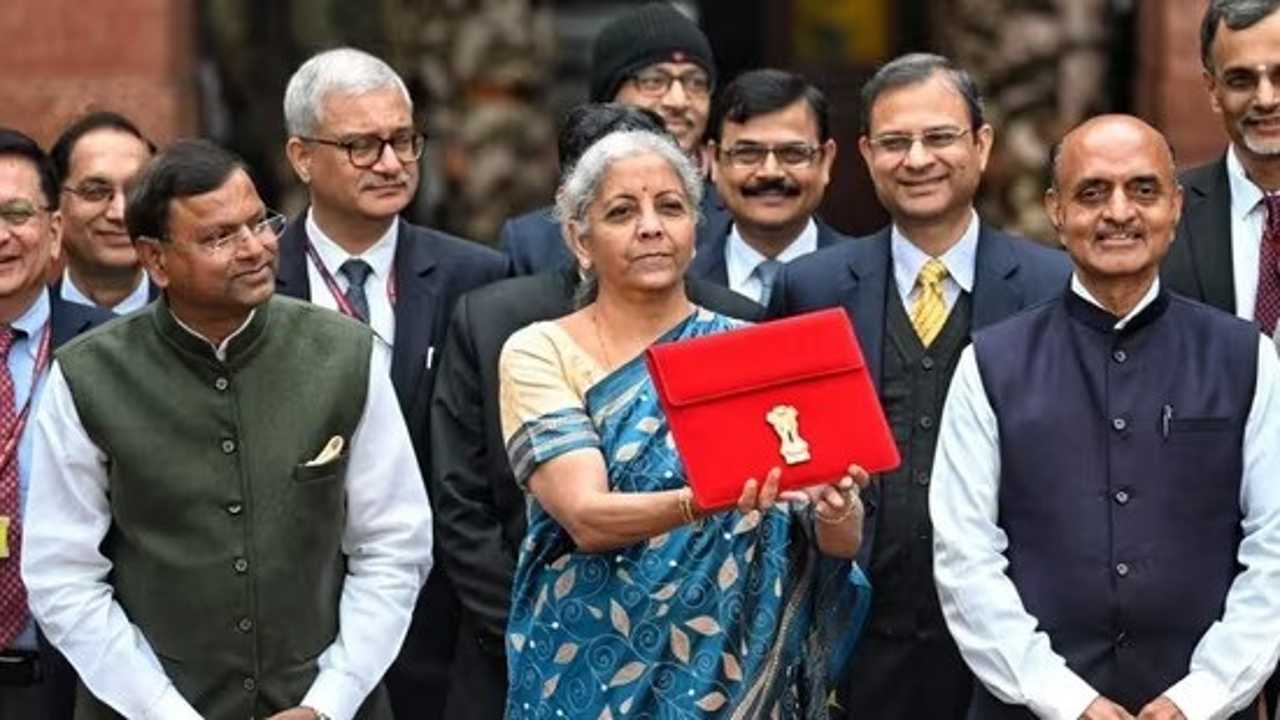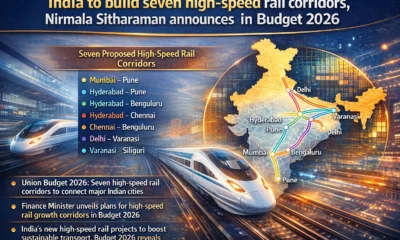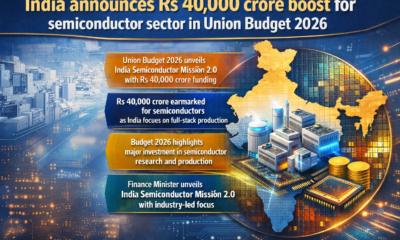With the Narendra Modi government’s second term coming to an end, Finance Minister Nirmala Sitharaman presented her sixth budget, albeit an interim one at that. The government has focused on people’s welfare, extension of social security schemes for the poor, women, youth and farmers. She said she hoped the people of the country will vote the party back to power in the Lok Sabha polls.
The Finance Minister said the BJP-led government is working to make India ‘Viksit Bharat’. She said the government was keen on governance, development and performance, GDP. The government has raised 25 crore people from below the poverty line over the 10 years. As expected, there was no change in tax slabs, though the FM spoke of increasing tax exempt income from Rs 2.5 lakh in 2013-14 to Rs 7 lakh last year, though under the new tax regime.
Keeping rural India firmly in mind, she said 2 crore (20 million) houses will be built under the PM Awaas Yojana Grameen over the next five years. Analysts had expected a similar plan for urban areas. Similarly, the Ayushman Bharat scheme has been extended to all ASHA and Anganwadi workers which would enable them to avail free medical treatment at primary health centres and government facilities.
A long-term financing corpus will be set up with 50-year interest free loan for longer tenures for development of tech industries. The government will also launch schemes to strengthen deep tech for defence purposes.
The bigger announcement was on the plan to limit the fiscal deficit below 5% in 2026 despite the push for greater infrastructure thrust. The deficit for 2024-25 is expected to stay at 5.8% of the GDP.
The government has also cancelled direct tax demands for some 1 crore taxpayers. The greater push for increasing solarisation among households via rooftop solarisation targeting 300 free units per month is a hat-tip to the free power schemes introduced by the Aam Aadmi Party.
Finance Minister completes interim budget presentation
Union Finance Minister Nirmala Sitharaman concluded her interim budget presentation.
Tax benefits extended to March 2025
The tax benefits for startups, investments made by sovereign wealth, pension funds are to be extended to March 2025
3 railway economic corridors programmes to be implemented
The railway economic corridor programmes for energy, minerals and cement as well as port connectivity and heavy will be put into effect. The Finance Minister stated that PM Gati Shakti has designated the projects that will enable multi-modal connectivity and will lower costs and increase the effectiveness of logistics
Nirmala Sitharaman push for enhancement in tech sector
During the budged presentation, the Finance Minister said that a corpus of Rs1 lakh crore will be established with 50-year interest free loan to provide long term financing with loang tenure with no or less interest rates. She added that a new technology will be launched to strengthen deeep tech for defence purpose.
FDI inflow during FY 14-25 was USD 596 bn
Finance Minister Nirmala Sitharaman asserted that the Foreign Direct Investment during the financial year 14-20 was USD 596 billion.
Union Finance Minister Sitharaman on PM Modi’s roof-top solarisation scheme
According to Nirmala Sitharaman, rooftop solarisation will provide 300 units of free electricity per month to 1 crore families.
Ayushman Bharat cover to be extended
Union Finance Minister Nirmala Sitharaman has said all Asha and Anganwadi workers will be included in the Ayushmann Bharat initiative.
FM announces 2 crore more houses under PMYA-G
Two crore more houses would be constructed under the Pradhan Mantri Awas Yojana – Gramin, according to the Union Finance Minister.
Nirmala Sitharaman explains government focus for the interim budget
Finance Minister Nirmala Sitharaman stated that the central government is focusing on four major groups namely poor, women, youth and the farmers.
Finance Minister begins interim budget presentation
Union Finance Minister Nirmala Sitharam commences to present the interim budget 2024-25, setting the stage for Lok Sabha Election 2024. In this budget, the Finance Minister is likely to focus on social welfare schemes, farmers, women and job creation.
Growth rate to stay above 6%
Ahead of the budget, the Economic Review had pegged the growth rate at 7%, the IMF has forecast GDP growth rate for India at 6.5%


 Latest world news15 hours ago
Latest world news15 hours ago
 Latest world news15 hours ago
Latest world news15 hours ago
 India News15 hours ago
India News15 hours ago
 Latest world news14 hours ago
Latest world news14 hours ago
 India News14 hours ago
India News14 hours ago















